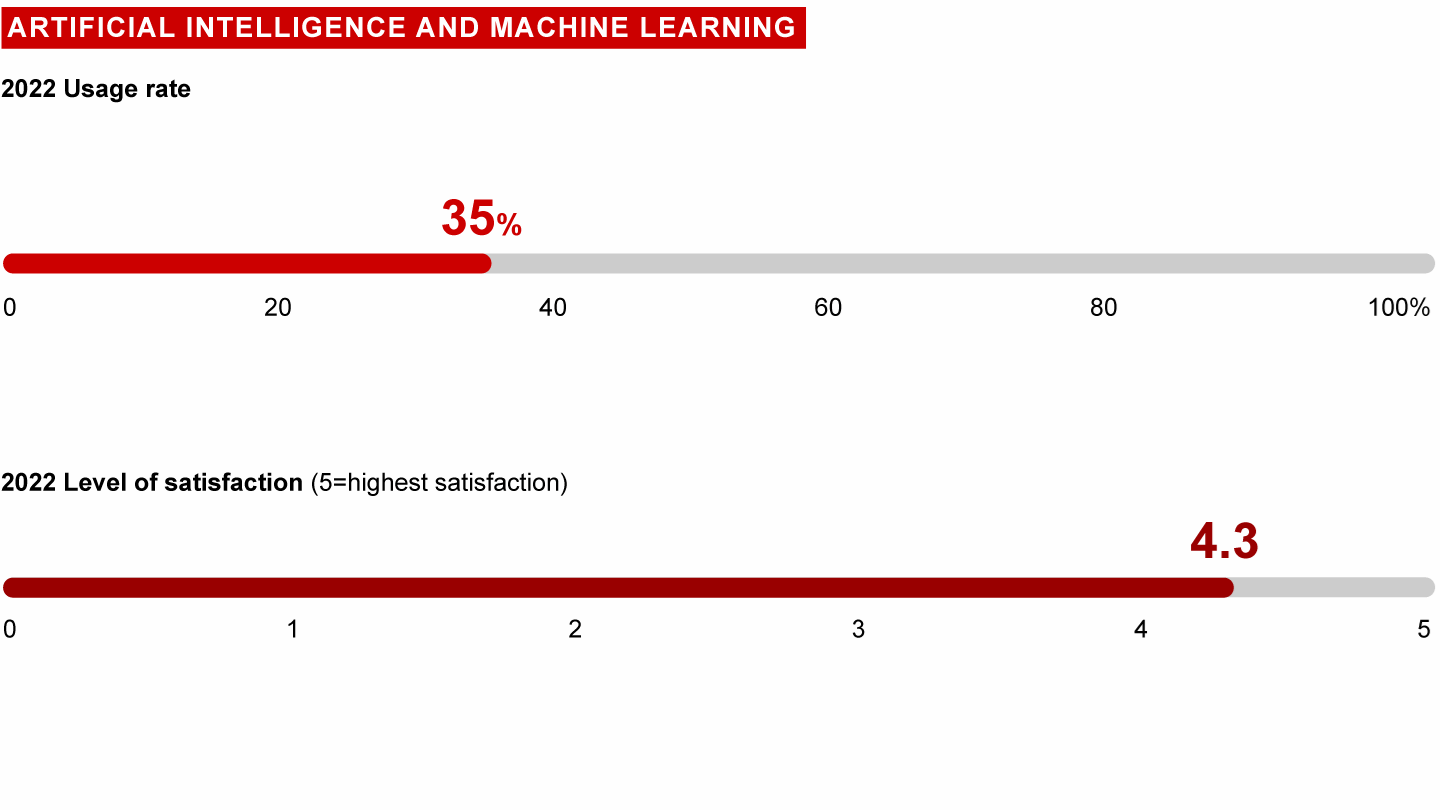Management Tools
What Are Artificial Intelligence (AI) and Machine Learning?
Artificial Intelligence (AI) is a range of analytical techniques that allows a computer to detect relationships, predict outcomes, and often act based on the patterns in data without being explicitly programmed to do so. Machine Learning is a technology that uses algorithms that learn and improve based on experience and is a major subfield of AI. Together AI and Machine Learning can be powerful tools for companies, enabling them to automate manual processes, optimize customer recommendations, and develop innovative products.
Usage and satisfaction among survey respondents


Various subareas of Machine Learning and AI are unlocking innovation in creative fields, sciences, engineering, and others. For example, Deep Learning mimics human learning and is a major enabler of computer vision, natural language processing, Robotics, and others. While the adoption of AI and Machine Learning can unleash new opportunities and insights, reduce costs, and improve processes, it is not without challenges. A growing concern is the ethical implications of AI, such as the risk that data sets used to train AI might reflect real-world bias and discrimination. At the same time, enablers, like cloud machine learning platforms, compute accelerators, and managed AI services, are reducing the technological barrier for businesses to leverage AI products.
How Are Artificial Intelligence and Machine Learning Implemented?
To apply Artificial Intelligence and Machine Learning, companies should:
- Define the business opportunity. Identify the right applications, such as those with high repetition, strong data, regular patterns and, ideally, low mistake costs. AI does not have to replace a human to be effective; it can be very valuable in helping humans do their jobs faster and more accurately.
- Design with the goal in mind. AI exists to enhance human decision making. Companies get the most out of the technology when they know the applications and decisions they want to improve.
- Invest in the process. Modern AI or Machine Learning algorithms still require vast amounts of data and large manual efforts to train and tune them. Test-and-learn strategies can help companies figure out which approaches work best for their businesses.
- Determine the data sources. Combining data from customers, operations, and finance can generate valuable insights.
- Develop AI organizational capabilities. Train employees how to interact with AI-based applications, understand the output, and alter the approach as needed.
- Address AI risks. Establish roles and processes to identify and help mitigate risks related to bias, flawed decision making, and data security.
Related Topics
What Are Common Uses of Artificial Intelligence and Machine Learning?
Companies typically use Artificial Intelligence and Machine Learning to:
- Improve internal processes, such as automating data entry, manufacturing, or customer support
- Improve existing products and services or develop new product and service offerings
- Provide more responsive and efficient service (e.g., chatbots, personalized content to enable self-service)
- Optimize marketing spend (e.g., better target their offerings to their customers)
- Detect fraud and security breaches

Management Tools & Trends 2023
On the 30th anniversary of our survey, managers seem surprisingly upbeat.